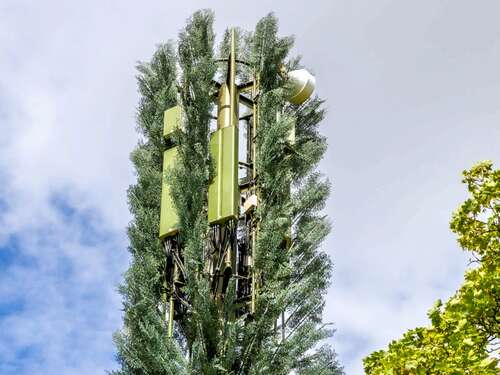
As concepts such as advanced 5G and generative AI continues to gain traction, some groups believe advanced technology may be the key to reducing emissions.
This year’s Mobile World Congress (MWC) discussed a lot of hot topics in the tech sector such as generative AI and 5G advancements, but like many sectors, climate and sustainability also had their seats at the table.
The telecoms sector has been pushing for a path to greater efficiency in recent years, with some of the big players sharing plans to trim down their staff numbers to become more profitable. This focus on efficiency is one reason why companies in this sector have taken a greater interest in sustainability – to get more bang for their buck.
But issues such as rising energy costs and more public awareness on climate issues have also prompted this sector to look more seriously at ways to go green. While the telecoms sector isn’t the biggest energy consumer currently, the rapid growth of data centres and the energy they consume is raising concerns about the future.
As a result, many talks around tech developments at MWC also discussed sustainability, which – according to the companies behind these developments – will benefit both their customers and the environment.
Sustainable advances
One of the companies pushing sustainability as a benefit to their products was Huawei, which claims its advanced version of 5G – 5.5G – is able to help operators reduce emissions thanks to its ‘0 Bit 0 Watt’ technology. The company has spoken about the sustainability aspects at previous MWC events but revealed the commercial launch of 5.5G at this year’s event.
Huawei said its 0 Bit 0 Watt technology is designed to adjust its power levels based energy demand at extremely quick speeds, to reduce the amount of wasted energy during idle hours. The tech giant claims that some of its offerings can reduce average daily energy consumption by up to 38pc.
But other companies spoke positively about the benefits of new technology when it comes to sustainability. Andrew Coward, IBM’s GM of software networking, spoke to SiliconRepublic.com about the company’s efforts in hybrid and multi-cloud applications.
During this discussion, he mentioned how – while there are overhyped elements to the current AI buzz – the technology can be used to make companies more sustainable.
“One of the ways we’re applying AI is to find the most efficient way of doing things,” Coward said. “Now of course AI is consuming vast amounts of compute to build the models so there’s a kind of short-term long-term thing there.
“But if you look at most national telcos, they consume a – single digits – but a significant amount of the country’s power supplies. I think we’ve got a lot more work to do in that space and I think AI can bring a massive efficiency to that space.”
IBM has also been applying AI for climate-focused initiatives, as the company partnered with NASA to create an AI foundation model focused on weather and climate. This was the progression of an earlier partnership that aimed to help researchers analyse and draw insights from large datasets for climate research.
A green transition
Companies in the telecoms sector were not the only groups speaking about climate at MWC however. At a Huawei green event in Barcelona, one of the key speakers was Massamba Thioye, a project executive with the UNFCCC Global Innovation Hub and a member of the European Green Digital Coalition’s advisory board.
Thioye spoke of the potential for the ICT sector to support other sectors on their efforts to reduce carbon emissions. He also referenced various tech initiatives taking place in the ICT sector that have the potential to reduce emissions, such as using the heat from data centres as an alternative way to heat up buildings.
A study from last year suggested that up to 97pc of the electrical energy from data centres could be recovered as heat.
Thioye also believes that technology could be the key to helping the world collectively reduce its emissions and said there is a need for the global south to “leapfrog” and adopt technology such as 5G quickly for this effort.
“Without a digital transition, it will be almost impossible to have a green transition,” Thioye said.
This viewpoint is similar to that of Luis Neves, the CEO of Global Enabling Sustainability Initiative. At a Huawei event in Cork last year, he said digital technologies will play a vital role in tackling the climate crisis and “broader sustainability issues”.
“What we see is that technology and digital will be a fundamental driver of sustainable development,” Neves said.
Going beyond the ICT sector
At this green event, representatives of telecoms companies Turkcel and HKT spoke about the emissions reductions their businesses had achieved and their sustainability goals for the future. But when asked about the biggest challenges to going greener, the need to achieve profits was referenced as a key issue.
When asked by SiliconRepublic.com about the possibility of incentives to help ICT companies make a green transition, Thioye said that the sector gets supported by the ITU, the UN’s specialised agency for ICTs.
He also said that companies in the ICT sector are doing their part to “reduce their carbon footprint”. But he added that there is a need for the development of services that help other entities reduce their carbon emissions, “particularly solutions that go beyond the vertical and focus on the people and their needs, at the city level or the country level”.
Find out how emerging tech trends are transforming tomorrow with our new podcast, Future Human: The Series. Listen now on Spotify, on Apple or wherever you get your podcasts.

